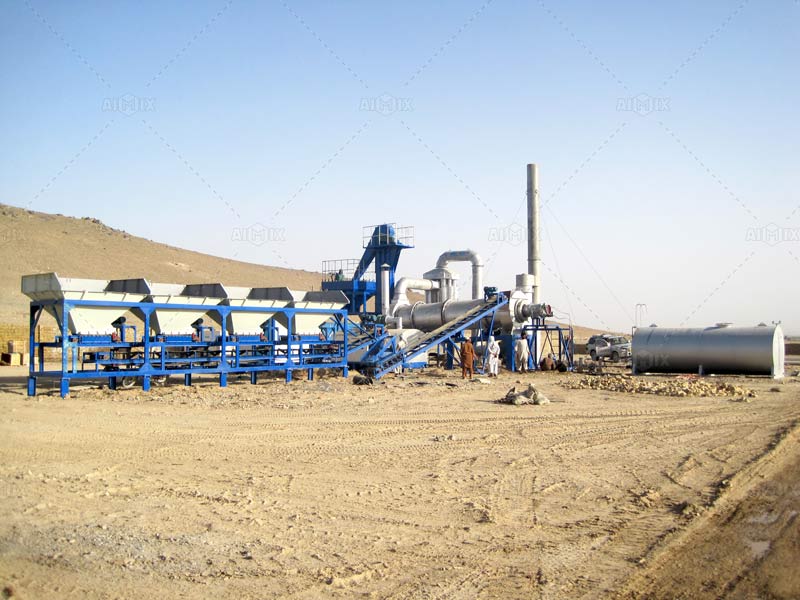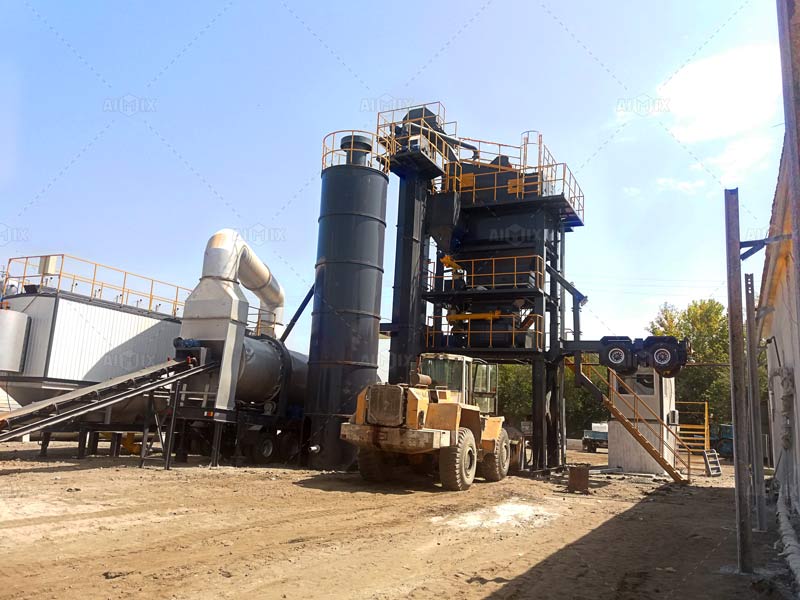The construction industry heavily relies on asphalt plants to produce the material needed for road construction and maintenance. Ensuring the smooth operation of these plants is critical for maintaining production schedules and delivering high-quality asphalt. This article explores the strategies and practices that asphalt plant operators use to maximize efficiency and ensure smooth operations, focusing on different types of plants, including continuous and mobile asphalt plants, and considering factors such as asphalt plant price and maintenance.
Understanding Asphalt Plants
Types of Asphalt Plants
Asphalt plants(Planta asfaltos) come in various configurations, each designed to meet specific production needs and operational requirements. The two primary types are batch asphalt plants and continuous asphalt plants.
- Batch Asphalt Plants: These plants produce asphalt in batches, allowing for precise control over the mix. They are ideal for projects requiring various asphalt mixtures.
- Continuous Asphalt Plants: As the name suggests, these plants produce asphalt continuously, making them suitable for large-scale projects where consistent production is essential. Their ability to run non-stop makes them a go-to choice for high-volume requirements.
Mobile Asphalt Plants
Mobile asphalt plants offer the flexibility to move production closer to job sites, reducing transportation costs and increasing efficiency. These plants are particularly beneficial for remote or large-scale projects where setting up a permanent plant is not feasible. The mobility of these plants allows for quick setup and teardown, making them ideal for temporary projects or locations where infrastructure development is ongoing.

Key Factors in Maximizing Efficiency
Regular Maintenance and Inspections
One of the most critical aspects of ensuring smooth operations in an asphalt plant is regular maintenance and inspections. Operators should establish a routine maintenance schedule that includes:
- Checking and lubricating moving parts to prevent wear and tear
- Inspecting belts, bearings, and motors for signs of damage or fatigue
- Cleaning and replacing filters to ensure optimal airflow and performance
- Ensuring proper calibration of weighing and mixing equipment to maintain product quality
By proactively addressing potential issues, operators can prevent unexpected downtime and extend the lifespan of the plant. Regular maintenance also helps maintain safety standards, reducing the risk of accidents or equipment failures that could disrupt operations.
Optimizing Production Processes
Efficiency in an asphalt plant is largely determined by how well the production processes are optimized. Operators should focus on:
- Streamlining the material handling process to reduce delays and bottlenecks, ensuring a continuous flow(planta asfaltica continua) of raw materials to the mixing drum
- Maintaining optimal temperature control to ensure consistent asphalt quality and prevent material degradation
- Implementing automation and control systems to monitor and adjust production parameters in real-time, enhancing precision and reducing human error
Optimizing these processes not only improves efficiency but also enhances the quality of the asphalt produced, leading to better end products and increased customer satisfaction.
Training and Skill Development
Well-trained operators are essential for maximizing the efficiency of an asphalt plant. Continuous training and skill development programs help operators stay updated with the latest industry practices and technological advancements. Training should cover:
- Operation and maintenance of equipment to ensure operators can handle the machinery effectively and troubleshoot common issues
- Safety protocols and emergency procedures to maintain a safe working environment
- Quality control and troubleshooting techniques to identify and address issues promptly, ensuring consistent product quality
Investing in the training and development of personnel not only improves operational efficiency but also enhances employee morale and retention, contributing to a more experienced and capable workforce.

Cost Management and Asphalt Plant Price
Evaluating Asphalt Plant Price
When investing in an asphalt plant, the price is a significant consideration. Operators must evaluate the asphalt plant price(precio de planta de asfalto) in relation to its features, capacity, and expected return on investment. Factors influencing the price include:
- Plant type (batch, continuous, or mobile) and the specific advantages each type offers
- Production capacity and efficiency, ensuring the plant can meet the demands of the project
- Advanced features such as automation and control systems, which can improve efficiency and reduce labor costs
- Brand reputation and after-sales support, ensuring long-term reliability and access to necessary parts and services
While upfront costs are important, operators should also consider the long-term benefits and potential cost savings associated with more advanced or efficient equipment.
Cost-Effective Operations
To manage costs effectively, operators should focus on:
- Reducing energy consumption by optimizing burner efficiency and insulation, which can significantly lower operating costs
- Minimizing waste and recycling materials where possible, contributing to both cost savings and environmental sustainability
- Negotiating favorable terms with suppliers for raw materials to reduce input costs
- Implementing preventive maintenance to avoid costly repairs and downtime, enhancing overall cost efficiency
By adopting these cost management strategies, operators can improve the profitability of their operations while maintaining high standards of quality and efficiency.
The Role of Technology
Automation and Control Systems
Modern asphalt plants increasingly rely on automation and control systems to enhance efficiency and consistency. These systems allow operators to:
- Monitor production parameters in real-time, enabling immediate adjustments to maintain optimal conditions
- Automatically adjust settings to maintain optimal production conditions, reducing the likelihood of human error
- Generate detailed reports for performance analysis and decision-making, providing insights into operational efficiency and areas for improvement
Automation not only improves operational efficiency but also enhances the quality and consistency of the asphalt produced, leading to better end products and increased customer satisfaction.
Data Analytics and Predictive Maintenance
Data analytics play a crucial role in maximizing efficiency. By analyzing production data, operators can identify patterns and trends that indicate potential issues before they become critical. Predictive maintenance uses this data to schedule maintenance activities based on actual equipment condition rather than a fixed schedule, reducing downtime and maintenance costs.
Implementing predictive maintenance strategies can significantly enhance the reliability and efficiency of mobile asphalt plant(planta de asfalto portatil) operations, reducing the risk of unexpected failures and extending the lifespan of critical equipment.
Conclusion
Maximizing efficiency in asphalt plant operations requires a comprehensive approach that includes regular maintenance, process optimization, operator training, and cost management. By leveraging technology and focusing on continuous improvement, asphalt plant operators can ensure smooth operations, high-quality production, and cost-effective performance. Whether working with a continuous asphalt plant or a mobile asphalt plant, the principles of efficient management remain the same, ultimately contributing to successful project outcomes and satisfied clients.